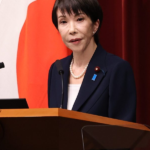The relentless rise of technology megacaps, including Microsoft, Nvidia, Apple, Alphabet, Amazon.com, Meta Platforms, and Tesla, has pushed fund managers to abandon active management strategies. The overwhelming dominance of these tech giants in the market has made it challenging for stock-picking professionals to outperform the benchmark. The article explores the impact of this concentration on market breadth, the active-share ratio, and fund positioning, highlighting the shift towards passive investing.

Key Points:
- Rise of Tech Megacaps:
- The surge in technology megacaps, driven by artificial intelligence, poses a challenge for fund managers aiming to beat the benchmark.
- Concentration Challenges:
- The dominance of seven major tech firms has made it nearly impossible for active managers to find stocks that can outperform the index.
- The active-share ratio, tracking deviations from the S&P 500, hit its lowest level since 2013 by the end of the last year.
- Magnificent Seven’s Impact:
- The concentration in tech megacaps led to the narrowest market breadth in decades, with only 27% of S&P 500 constituents outperforming the benchmark in 2023.
- The combined weight of the Magnificent Seven reached unprecedented levels, comprising 29% of the S&P 500 at one point, according to Goldman Sachs data.
- Market Dynamics and Optical Illusions:
- While concentration raises concerns of a crowded trade, the article notes that a focus on profit growth and favorable interest-rate backdrops can sustain the expansion of tech behemoths.
- Benchmark weighting concentration may create optical illusions, potentially making it appear that active managers are overweight in technology.
- Underperformance Risks:
- The reluctance to hold significant positions in top-performing tech stocks contributed to underperformance for many money managers in the previous year.
- Only 38% of large-cap funds beat their benchmark in 2023, with an aversion to tech megacaps affecting their overall performance.
- Shift Towards Passive Investing:
- The trend of active funds mirroring their benchmark has been ongoing since 2017, aligning with the continued ascent of the tech sector.
- The active-share ratio has declined, indicating a move towards more passive strategies among fund managers.
- Regulatory Constraints:
- Regulatory limitations on concentration in diversified mutual funds, dating back over 80 years, have posed challenges for fund managers seeking exposure to specific tech stocks.
- Current Environment for Active Managers:
- Active managers are adapting to the concentration in the market by taking index-like positions, aiming to keep up with the tech-driven momentum.
- The shift towards passive investing reflects the inherent conflict active managers face in maintaining diversified portfolios amid market concentration.
As the tech-driven surge continues, fund managers grapple with the dilemma of adapting to a market environment dominated by a few tech giants or surrendering to passive investing strategies. The article provides insights into the challenges, risks, and regulatory factors influencing this shift in investment approaches.









